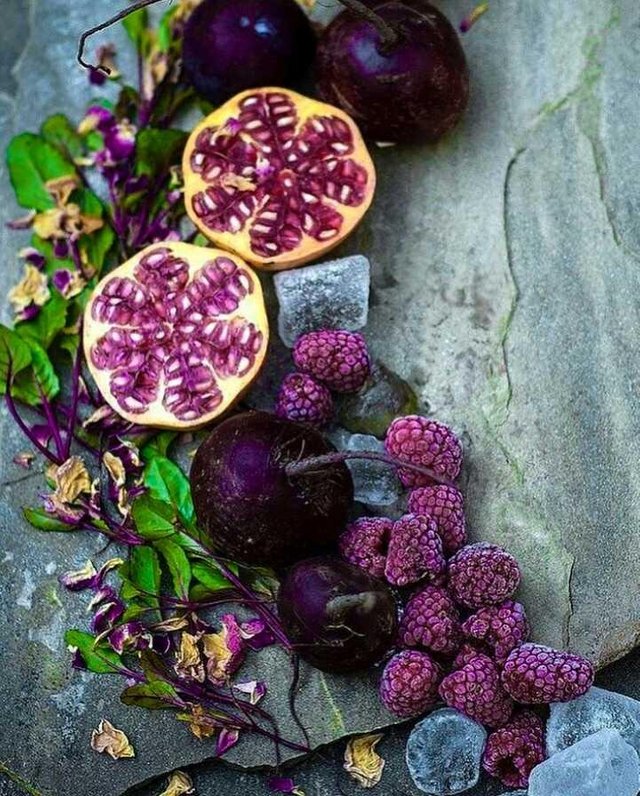antioxidants fruits

Purple fruit is a fruit rich in antioxidants, such as purple pomegranate and purple berries. Both contain the benefits of efficacy and goodness of flavonoid compounds which are powerful antioxidant substances as an antidote to free radicals while repairing damaged cells in the body. Even the content of antioxidants in pomegranates is three times more than wine, orange juice or green tea. In addition to the fruit is rich in antioxidants, pomegranate juice is also rich in vitamin C, A and E, containing potassium or high potassium ions and folic acid. From the edible part of the seed, potassium content per 100 grams (259 mg/g), energy 63 cal, 30 mg of vitamin C. This component is considered very important for heart health. Traditionally, pomegranates are commonly used to cleanse the skin and reduce inflammation of the skin. Pomegranate juice can also reduce the suffering of sore throat. According to research conducted by the American Journal of Clinical Nutrition, these pomegranates can prevent oxidation of LDL or bad cholesterol in the body. Furthermore, 100 grams of mulberries contain 89.9 g of water, 37 kcal of energy, 0.5 mg fat, 60 SI of vitamin A, 0003 mg of vitamin B1, 60 mg of vitamin C (equivalent to daily requirement), 28 mg calcium, 27 mg phosphorus, 0.8 mg of iron (Fe), 30 mg of folic acid, 0.8 g protein and 8.3 g of carbohydrate. In addition, in the mulberry also contain antioxidant substances in the form of saponins, flavonoids and polyphenols that play an active role neutralize free radicals cause infection and trigger the emergence of cancer cells. Calcium content in mulberries play a role in maintaining bone density and strengthen teeth. Vitamin C in the fruit of the mulberry serves to prevent thrush, maintain skin health or premature aging, by consuming mulberries, it will increase the defense of stamina, stomach health, prevent typhoid, hepatitis, fever and blood circulation.